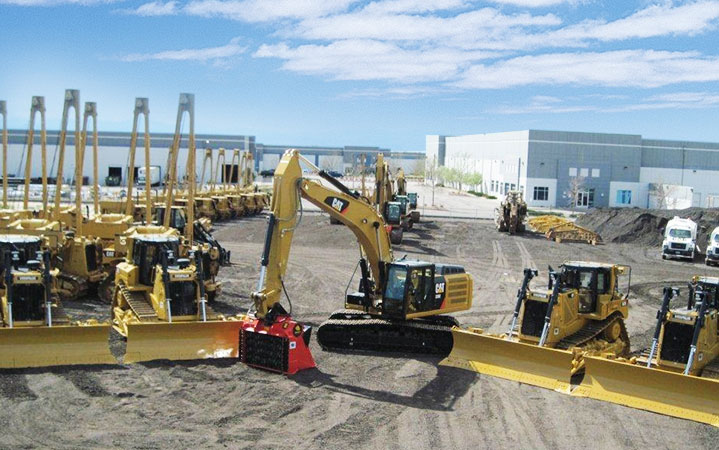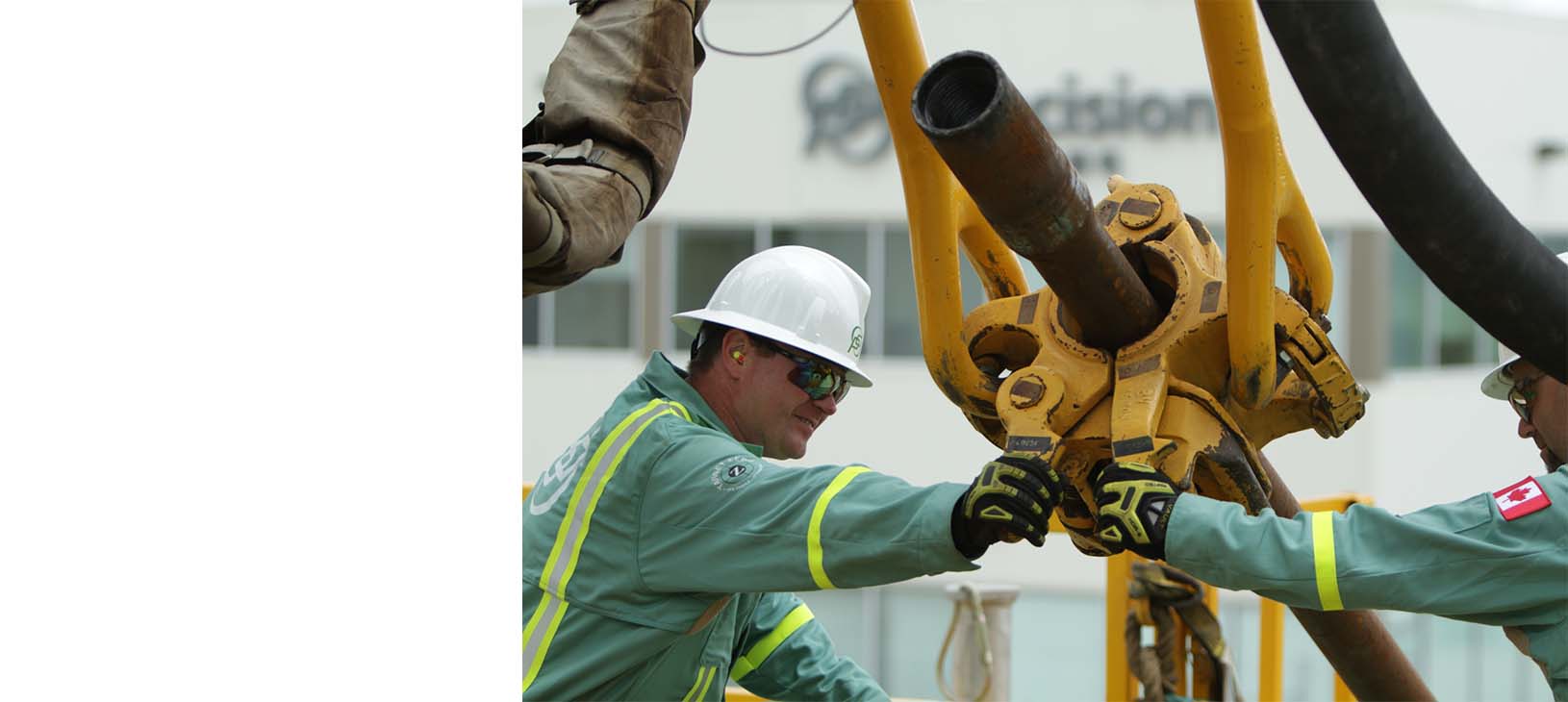A Comprehensive Overview to the Numerous Kinds of Oil Field Equipment and Pipeline Equipment Available
The oil and gas industry depends heavily on specific tools for reliable removal and transportation. Numerous sorts of equipment, from piercing rigs to storage tanks, play important functions in this complicated procedure. Each tool serves unique features that add to overall operational success. Comprehending these parts is vital for any individual entailed in the field. As the industry develops, so as well do the innovations that sustain it. What improvements are on the perspective?

Drilling Rigs: The Backbone of Oil Expedition
Drilling rigs function as the crucial machinery in the domain name of oil exploration, allowing firms to gain access to hydrocarbon gets buried deep underneath the Planet's surface. These rigs are available in various types, consisting of land rigs, offshore rigs, and mobile units, each developed to run in specific atmospheres. Outfitted with sophisticated modern technology, drilling rigs can permeate geological developments with accuracy, ensuring effective source extraction. The structural stability and functional capacities of these rigs are critical, as they need to withstand extreme conditions and substantial stress. The choice of a drilling rig affects the general task price and timeline, making it an important consideration for oil firms seeking to optimize their expedition initiatives and take full advantage of performance in their procedures.
Pumps: Important for Fluid Movement
In the oil extraction procedure, the duty of pumps is substantial, promoting the activity of liquids throughout different stages of production. Pumps are essential for transferring crude oil, water, and other fluids from below ground tanks to the surface and afterwards through pipes to refineries. They can be found in different types, including centrifugal, favorable variation, and submersible pumps, each serving details objectives based on the fluid features and functional requirements. Centrifugal pumps are commonly made use of for their effectiveness in high-flow applications, while positive variation pumps master dealing with viscous fluids. The selection of pump effects overall efficiency, functional security, and maintenance costs. Correct choice and maintenance of pumps are essential for enhancing production and decreasing downtime in oil area operations.
Valves: Managing Circulation and Pressure

Valves play a vital role in taking care of the circulation and stress of fluids within oil fields and pipelines. Different sorts of shutoffs serve distinct applications, each developed to meet details functions fundamental for effective operation - Superior Rentals fusion machines. Understanding the characteristics and uses these valves is vital for enhancing system performance and security
Types of Valves
Vital elements in oil area operations, valves play an important function in managing the flow and pressure of liquids within pipes and tools. Numerous sorts of shutoffs are made use of to fulfill the varied demands of oil and gas production. Common types include entrance valves, which supply a straight-line circulation and marginal pressure drop; globe shutoffs, understood for their strangling capacities; and round shutoffs, acknowledged for their quick on/off control. Furthermore, check valves avoid backflow, while butterfly valves offer a lightweight service for controling circulation. Each shutoff type is developed with particular products and setups to hold up against the rough conditions usually located in oil fields, making sure reliability and efficiency in procedures. Comprehending these types is critical for reliable system administration.
Valve Applications and Features
While various sorts of valves serve distinctive functions, their primary applications rotate around controlling circulation and pressure within oil and gas systems. Shutoffs such as gate, world, and ball shutoffs regulate fluid activity, guaranteeing peak efficiency and security. Gateway valves are generally used for on/off control, giving minimal circulation resistance. Globe valves, on the various other hand, offer exact circulation policy, making them ideal for throttling applications. Sphere shutoffs are favored for their fast procedure and tight securing capabilities. On top of that, stress safety valve are essential for avoiding system overpressure, guarding equipment stability. On the whole, the suitable choice and application of shutoffs enhance operational effectiveness, ensuring the trustworthy transport of oil and gas with pipes and processing centers.
Compressors: Enhancing Gas Transport
Compressors play a crucial function in the reliable transportation of gas, guaranteeing that it relocates smoothly through pipelines over fars away. These gadgets boost the stress of gas, permitting it to overcome friction and elevation modifications within the pipeline system. Furthermore, compressors assist in the harmonizing of supply and need, fitting variations in intake and manufacturing prices. Numerous kinds of compressors are used in the sector, consisting of centrifugal, reciprocating, and rotating screw compressors, each offering distinctive benefits based upon the operational demands. Routine maintenance of these compressors is necessary to make the most of efficiency and reduce downtime, ultimately adding to a trustworthy gas transport network. Their vital function underscores the importance of compressors in the overall oil and gas infrastructure.
Storage Tanks: Safe and Efficient Liquid Administration
Efficient transport of gas counts on different supporting systems, among which is the appropriate administration of storage tanks. These containers play a crucial duty in securely having liquids, making sure that operational effectiveness is maintained while reducing environmental risks. Constructed from sturdy materials, they are made to endure high stress and harsh components. Appropriately sized and tactically situated, storage space containers help with the smooth circulation of all-natural gas and other fluids, avoiding traffic jams in supply chains. Regular upkeep and surveillance are critical to spot leaks or structural problems, promoting security and compliance with governing requirements. Inevitably, the reliable management of storage containers is vital for the general honesty and dependability of the oil and gas industry's fluid handling systems.
Pipeline Solutions: Framework for Transport
Pipeline systems act as the foundation of the oil Full Article and gas sector, helping with the go now effective transportation of hydrocarbons over vast distances. These systems contain different parts, including pipes, shutoffs, pumps, and compressors, all meticulously created to ensure smooth flow. The materials utilized in pipeline building and construction, typically steel or high-density polyethylene, are selected for longevity and resistance to corrosion. Pipeline networks can span throughout land and water, attaching production sites to refineries and circulation centers. Additionally, advanced modern technology allows real-time monitoring of circulation rates and pressure degrees, enhancing operational performance. The tactical positioning of these pipelines lessens environmental influence while maximizing resource ease of access, thereby playing a crucial role in conference power needs internationally.
Security Equipment: Guaranteeing Worker and Environmental Protection
The operation of pipeline systems, while crucial for power transport, also provides considerable security difficulties for workers and the environment. Safety and security tools plays a significant duty in alleviating these dangers. Individual protective devices (PPE) such as safety helmets, handwear covers, and non-slip shoes safeguards workers from physical risks. Furthermore, gas discovery systems keep track of for leakages, making certain that hazardous materials do not pose a danger to personnel or the surrounding environment. Emergency shutdown systems are vital for quickly stopping procedures throughout a situation, preventing potential calamities. Spill containment products, consisting of absorbents and barriers, are fundamental for reducing ecological effect. On the whole, purchasing comprehensive security devices is critical for maintaining functional honesty and safeguarding both employees and the setting in the oil and gas field.

Often Asked Concerns
Just how Do I Choose the Right Oil Field Equipment for My Task?
Picking the ideal oil area tools involves evaluating project requirements, budget plan constraints, and operational needs. Think about elements such as tools reliability, compatibility with existing systems, and the provider's credibility to ensure peak efficiency and safety.
What Are the Maintenance Needs for Oil Field Equipment?
Upkeep needs for oil field devices include routine inspections, lubrication, and prompt repairs. read the article Operators must likewise abide by maker guidelines, screen efficiency metrics, and warranty conformity with security guidelines to enhance long life and effectiveness.

Just How Can I Make Certain Conformity With Environmental Rules?
To assure compliance with ecological laws, companies must carry out routine audits, implement best methods, invest in training, keep correct paperwork, and stay updated on regulations (Superior Rentals Contact). Collaboration with ecological firms can likewise enhance adherence to laws
What Is the Typical Life-span of Pipeline Equipment?
The average lifespan of pipeline tools normally varies from 20 to half a century, relying on factors such as material quality, ecological problems, and maintenance practices. Normal evaluations can greatly influence durability and operational performance.
Exactly how Do I Safely Carry Oil Field Equipment to Remote Locations?
Transporting oil area tools to remote locations needs mindful preparation, consisting of route assessment, safeguarding authorizations, using suitable automobiles, and guaranteeing security protocols are followed. Appropriate training and communication amongst teams are vital for effective transport.